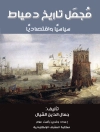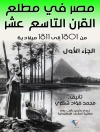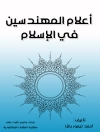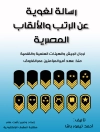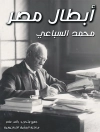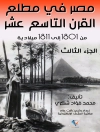Desert Peoples: Archaeological Perspectives provides an issues-oriented overview of hunter-gatherer societies in desert landscapes that combines archaeological and anthropological perspectives and includes a wide range of regional and thematic case studies.
* Brings together, for the first time, studies from deserts as diverse as the sand dunes of Australia, the U.S. Great Basin, the coastal and high altitude deserts of South America, and the core deserts of Africa
* Examines the key concepts vital to understanding human adaptation to marginal landscapes and the behavioral and belief systems that underpin them
* Explores the relationship among desert hunter-gatherers, herders, and pastoralists
Tabla de materias
Notes on Contributors.
1. Global Deserts in Perspective: Mike Smith, Peter Veth, Peter
Hiscock and Lynley A. Wallis (National Museum of Australia;
Australian Institute of Aboriginal and Torres Strait Islander
Studies; The Australian National University; The Australian
National University).
Part I: Frameworks:.
2. Theoretical Shifts in the Anthropology of Desert
Hunter-Gatherers: Thomas Widlok (University of Heidelberg).
3. Pleistocene Settlement of Deserts from an Australian
Perspective: Peter Hiscock and Lynley A. Wallis (both at The
Australian National University).
4. Arid Paradises of Dangerous Landscapes: A Review of
Explanations for Paleolithic Assemblage Change in Arid Australia
and Africa: Peter Hiscock and Sue O’Connor (both at The
Australian National University).
Part II: Dynamics:.
5. Evolutionary and Ecological Understandings of the Economics
of Desert Societies: Comparing the Great Basin USA and the
Australian Deserts: Douglas W. Bird and Rebecca Bliege Bird (both
at University of Maine).
6. Cycles of Aridity and Human Mobility: Risk Minimization
amongst Late Pleistocene Foragers of the Western Desert, Australia:
Peter Veth (Australian Institute of Aboriginal and Torres Strait
Islander Studies).
7. Archaic Faces to Head-Dresses: The Changing Role of Rock Art
across the Arid Zone: Jo Mc Donald (Jo Mc Donald Cultural Heritage
Management Pty Ltd).
8. The Archaeology of the Patagonia Deserts: Hunter-Gatherers in
a Cold Desert: Luis Alberto Borrero (Consejo Nacional de
Investigaciones Cientificas y Tecnicas and the Universidad de
Buenos Aires, Argentina).
Part III: Interactions:.
9. Perspectives on Later Stone Age Hunter-Gatherer Archaeology
in Arid Southern Africa: Anne I. Thackeray (University of the
Witwatersrand, Johannesburg, South Africa).
10. Long Term Transitions in Hunter-Gatherers of Coastal
Northwest Australia: Kathryn Przywolnik (Department of Environment
and Conservation (NSW), Sydney, Australia).
11. Hunter-Gatherers and Herders of the Kalahari during the Late
Holocene: Karim Sadr (University of the Witwatersrand,
Johannesburg, South Africa).
12. Desert Archaeology, Linguistic Stratigraphy, and the Spread
of the Western Desert Language: Mike Smith (National Museum of
Australia).
13. People of the Coastal Atacama Desert: Living between Sand
Dunes and Waves of the Pacific Ocean: Calogera M. Santoro, Bernardo
T. Arriaza, Vivien G. Standen, and Pablo A. Marquet (Universidad de
Tarapacá Arica, Chile; University of Nevada, Las Vegas;
Universidad de Tarapacá Arica, Chile; Pontificia Universidad
Católica de Chile, Santiago).
14. Desert Solitude: The Evolution of Ideologies amongst
Pastoralists and Hunter-Gatherers in Arid North Africa: Andrew B.
Smith (University of Capetown, Rondebosch, South Africa).
15. Hunter-Gatherer Interactions with Sheep and Cattle
Pastoralists from the Australian Arid Zone: Alistair Paterson
(University of Western Australia).
16. Conclusion: Major Themes and Future Research Directions:
Peter Veth (Australian Institute of Aboriginal and Torres Strait
Islander Studies).
General Index.
Index of Archaelogical Features and Subjects
Sobre el autor
Peter Veth is Director of Research at the Australian
Institute of Aboriginal and Torres Strait Islander Studies,
Canberra. He is the author of over 100 articles and books on the
archaeology of arid zone hunter-gatherers.
Mike Smith is Director of Research and Development at the
National Museum of Australia. He pioneered research into late
Pleistocene settlement in the Australian desert and has worked
extensively across the arid zone attempting to piece together its
human and environmental history.
Peter Hiscock is a Reader in the School of Archaeology
and Anthropology at the Australian National University.


